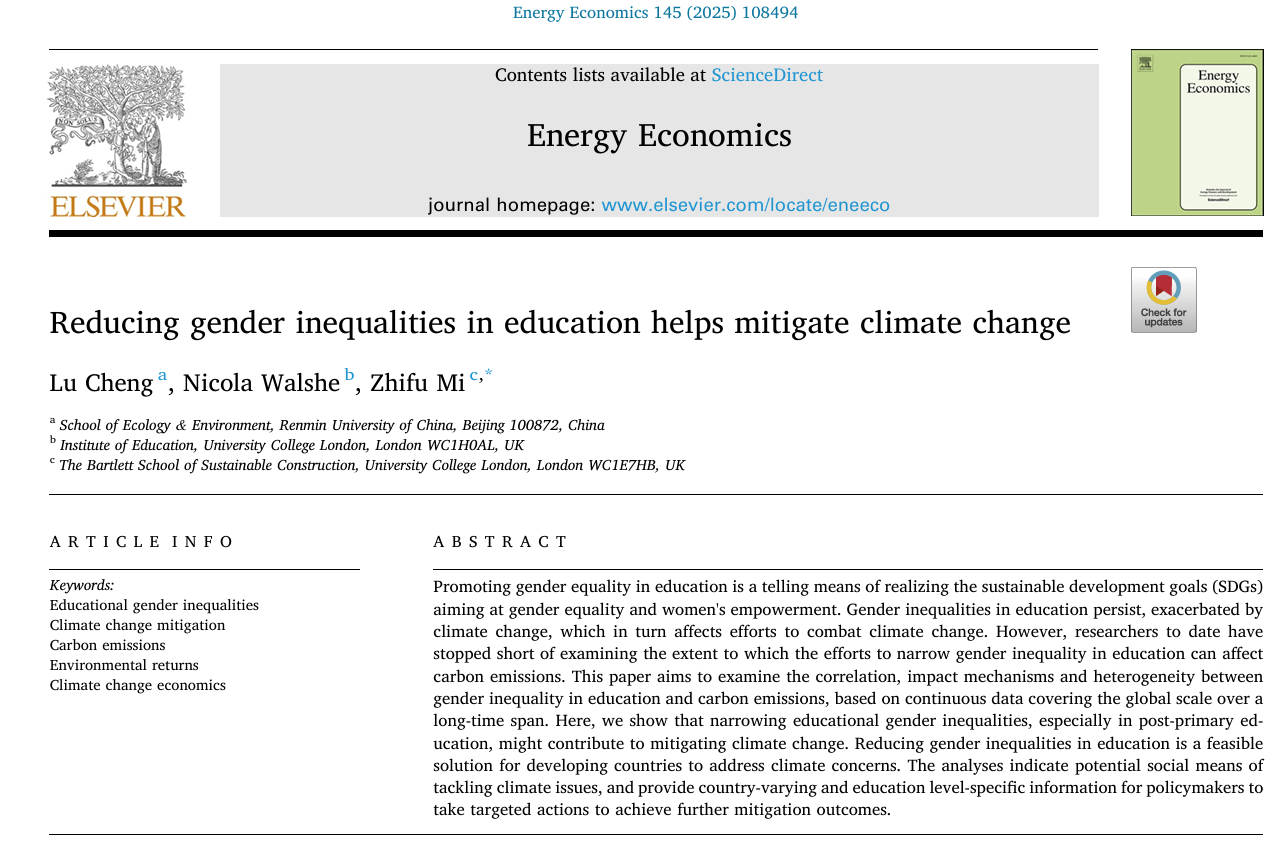Assistant Professor Lu Cheng from the School of Ecology and Environment has recently published a paper as the first author in Energy Economics, a top-tier journal in energy economics. The study, titled Reducing Gender Inequalities in Education Helps Mitigate Climate Change, was conducted in collaboration with other researchers.

Within the United Nations Sustainable Development Goals (SDGs), SDG 5 (Gender Equality) and SDG 13 (Climate Action) are typically regarded as two distinct development agendas. This study, however, demonstrates that advancing gender equality in education may serve as a critical leverage point for addressing climate change. Through quantitative analysis, the research reveals the underlying mechanisms and empirical evidence supporting this synergistic effect.
This study establishes an econometric model incorporating panel data from 149 countries spanning 1990 to 2020. By applying an instrumental variables approach to mitigate endogeneity concerns, the research systematically investigates the long-term relationship between gender equality in education and carbon emissions, analyzes the varying marginal emission reduction effects across different educational stages, explores regional heterogeneity in these effects, and elucidates the underlying mechanisms through which educational gender equality impacts carbon emissions.
The findings demonstrate that reducing gender disparities in education contributes meaningfully to climate change mitigation, with the promotion of gender equality in secondary and higher education proving particularly impactful. Enhancing educational gender equality emerges as a viable climate solution for developing nations. These analyses reveal potential societal approaches to addressing climate challenges, underscoring that effective solutions extend beyond technological domains to encompass social equity transformations. Gender equality in education thus represents not only a matter of social justice but also an effective climate governance tool with measurable emission reduction benefits. This evidence-based discovery provides a policy pathway for concurrently achieving SDG 5 and SDG 13, highlighting the strategic value of social equity reforms in climate governance.
https://www.sciencedirect.com/science/article/pii/S0140988325003184?via%3Dihub=



